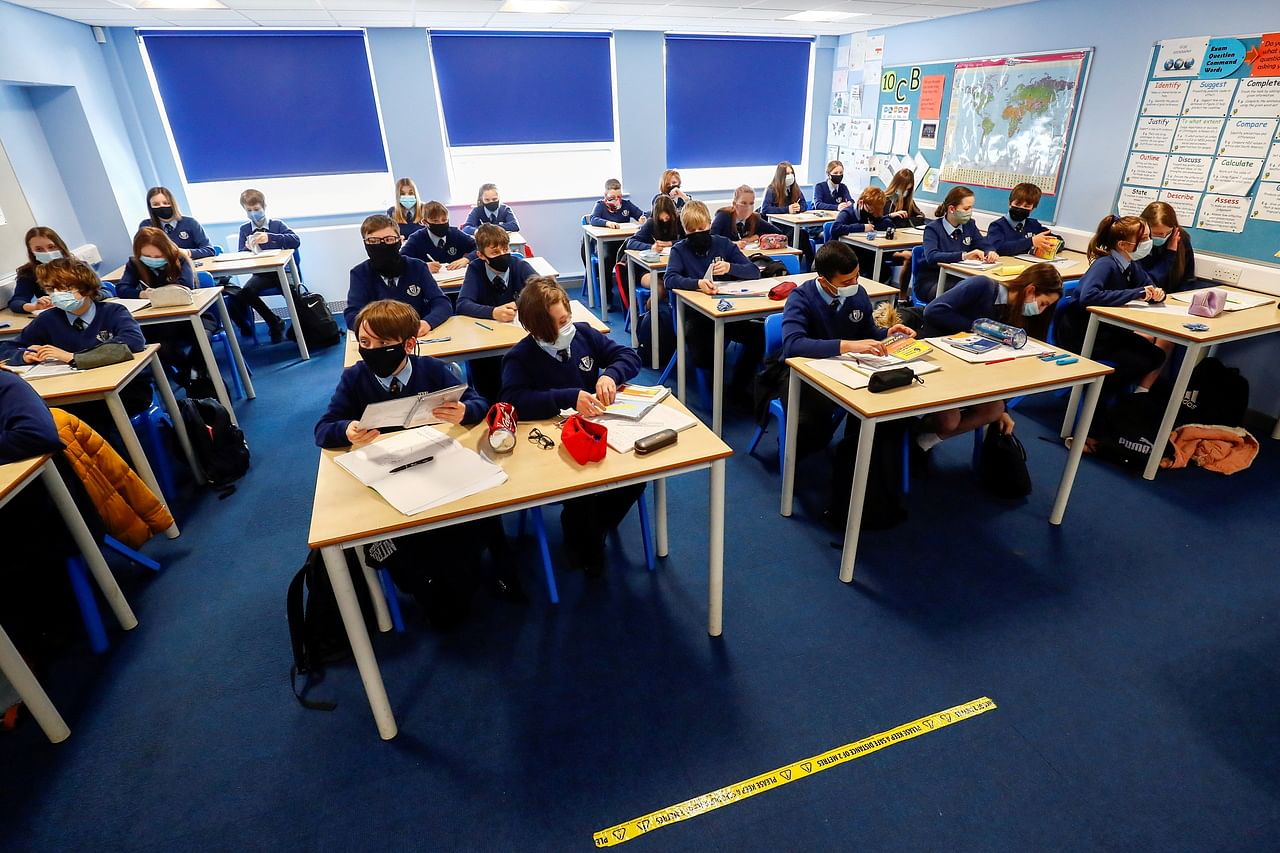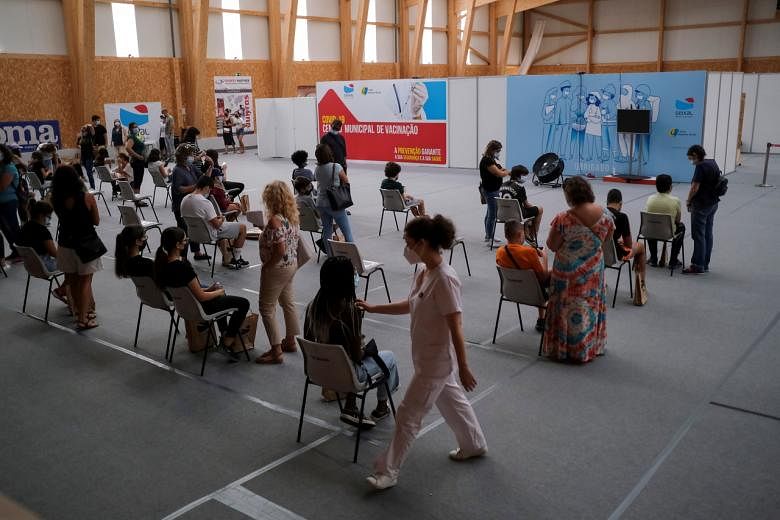PORTO (NYTIMES) - Europe is once again at the epicentre of the Covid-19 pandemic, with more cases being reported each day on the continent than at any previous point. In Austria, Germany and the Netherlands, infection rates have already surged to double those of last winter's peak.
In response, governments have been forced to reimpose the types of strict restrictions that most Europeans thought were behind them. Lockdowns have been ordered in Austria and Slovakia, with bars, restaurants and non-essential shops closing in an effort to bring the countries' outbreaks under control.
The emergence of the new Omicron variant, which the World Health Organisation says could pose a higher risk of reinfection, has alarmed European leaders. Cases of the variant have so far been detected in travellers to more than 10 European countries, including Denmark, the Netherlands and Britain.
Speaking during a visit to Latvia on Sunday (Nov 28), Ms Ursula von der Leyen, the president of the European Commission, said that although it will take two to three weeks for scientists to get a full picture of the variant, the highest priorities should be social distancing and administering booster doses.
"The general line is: Hope for the best, but prepare for the worst," she added.
Even with highly effective vaccines, European health officials are still struggling to combat the highly contagious delta variant, as colder temperatures bring more gatherings indoors.
The winter surge has highlighted the disparities in vaccination rates across the continent. Even though cases have risen throughout the continent, it's so far only in poorly vaccinated countries that deaths have reached the levels that followed similar surges last winter.
Experts agree that the only way to break the current cycle of surges and restrictions is to improve vaccination rates.
Mr Bruno Ciancio, head of surveillance for the European Centre for Disease Prevention and Control, said that while lockdowns are the sole choice for countries once the virus's spread becomes unsustainable, they only help in the short term.
"At the same time as implementing such measures, it is imperative that everything is done to actually increase the level of protection in the population," Mr Ciancio said. "Otherwise, it will be just back and forth. And unfortunately, we are at risk of seeing this through the winter months."
Europe is a patchwork of high and low vaccination rates. Portugal and Malta are two of the most highly vaccinated countries in the world, with 87 per cent and 86 per cent of their populations fully vaccinated.
But in Eastern Europe, campaigns have been damaged by misinformation and distrust of governments. Romania has fully vaccinated 38 per cent of its population, while Bulgaria has vaccinated only 25 per cent of its population.
Older age groups are better protected across the continent, but vaccination rates in children still lag. The European Medicines Agency last Thursday (Nov 25) approved the use of the Pfizer-BioNTech coronavirus vaccine for children ages 5 to 11, six months after it was approved in 12- to 15-year-olds.
Despite their low risk of hospitalisation or death, unvaccinated children can fuel outbreaks in the wider population, as seen in England when infections in schools surged after pupils returned to class this fall.
"If the virus circulates widely among younger people, it will unfortunately break through to older people as well," Mr Ciancio said. "And this will be more and more the case with waning immunity."

Studies in numerous countries have found that the vaccines' protection against symptomatic infection declines over time. A study in England found that two doses of the Pfizer-BioNTech vaccine was only 70 per cent effective at preventing symptomatic infection 20 weeks after the second dose was administered, down from 90 per cent after two weeks.
Most European countries vaccinated seniors and health care workers in the early stages of their vaccination campaigns, protecting them in the spring and summer, but leaving them more susceptible to waning immunity now.
In many European countries, an increase in case rates in seniors, who are more vulnerable to severe illness or death from the virus, has followed a rise in case rates in children and younger adults.
Portugal, Europe's most widely vaccinated country, has announced new measures and a return to the "state of calamity" that was lifted four months ago. In the first week in January, more restrictions will be put into effect during a "containment week" aimed at preventing a post-holidays spike in cases: Working from home will be mandatory for those who are able, bars will be closed, and school vacations will be extended.

Many leaders are desperate to avoid strict restrictions that could harm their economies in the busy Christmas period. France is rolling out booster doses to all adults and will not renew health passes for those who refuse. At a news conference last Thursday, the French health minister, Olivier Veran, said that "no lockdown, no curfew, no store closures, no travel restrictions" would be put in place. "We are making the choice to reconcile freedom and responsibility," he said.
New restrictions have been met with resistance in many countries. About 40,000 people protested in Austria on Nov 20 after the announcement of a national lockdown and mandatory vaccination. On the previous day in the Netherlands, police officers fired warning shots and used water cannons against hundreds of demonstrators who set fires in protest of the country's partial lockdown, in which bars, cafes and shops now shut at 5pm.
The discovery of the new Omicron variant, classified by the World Health Organisation on Friday as a "variant of concern", has added an additional measure of urgency to European leaders' efforts to curtail the continent's surge in cases.
It will take time for scientists to determine whether the vaccines are still effective against the new variant, but the European Union has banned foreign travellers who have recently been in South Africa or Botswana, where the variant was first detected, or any of several neighbouring countries.











